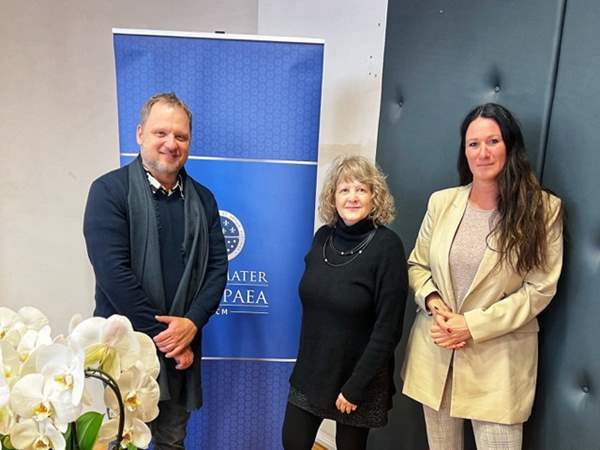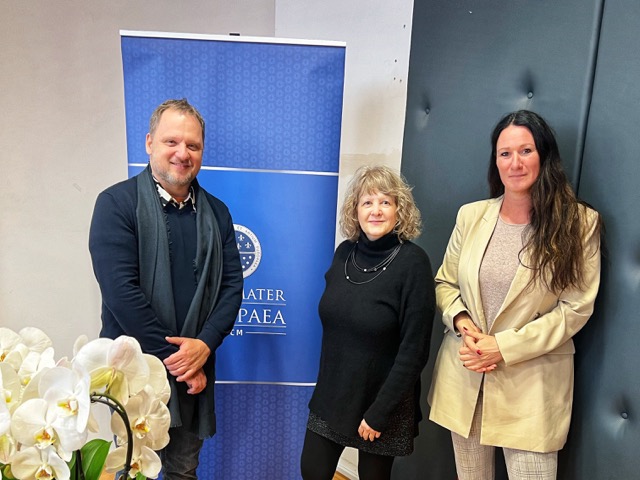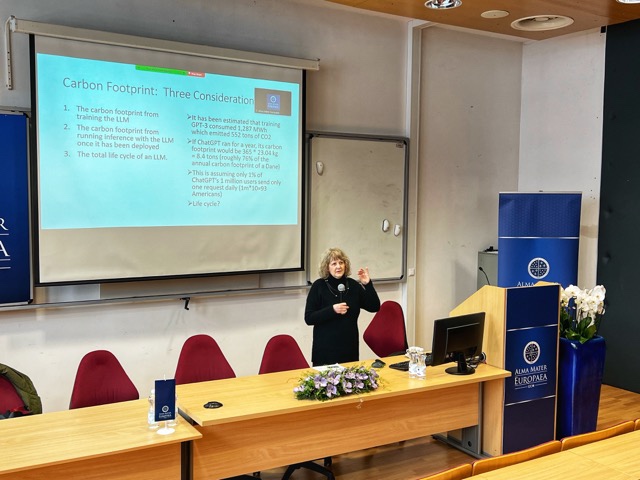
The impact of artificial intelligence on humanity

At today's introductory lecture on the new doctoral study program Applied Artificial Intelligence in cooperation with the Institute for Philosophical and Religious Studies ZRS Koper, we hosted scientist Professor Dr Noreen Herzfeld, a distinguished professor of computer science and theology at Saint John's University in Minnesota, USA. She is engaged in research on artificial intelligence and ethics.
Professor Herzfeld's lecture focused on sustainability and artificial intelligence, suddenly becoming a huge topic. Mainly because of the significant language models, especially Chat Gpt, but also Dolly Valley and all the other models that use deep learning and big datasets. "Everywhere we see headlines warning us about artificial intelligence. We always have to ask ourselves how much of this is true and, more importantly, whether AI is politically or socially sustainable. How does it affect our society? On our politics and mutual human relations?" said dr. Herzfeld asked rhetorical questions.
Professor Dr Noreen Herzfeld received her bachelor's degree in computer science and mathematics from Pennsylvania State University and her doctorate in theology from The Graduate Theological Union, Berkeley. She is the author of In Our Image: Artificial Intelligence and the Human Spirit (Fortress, 2002); Technology and Religion: Remaining Human in a Co-Created World (Templeton, 2009); The Limits of Perfection in Technology, Religion and Science (Pandora, 2010) and editor of the journal Religion and the New Technologies (MDPI, 2017).
Herzfeld teaches in the Department of Computer Science and Theology at the University of St. John's and College of St. Benedict, reflecting her two primary research interests—the intersection of faith and technology and religion and conflict.
The bibliography of Dr Noreen Herzfeld has numerous articles and book chapters on artificial intelligence and ethical issues. "Today, people often wonder how artificial intelligence is changing our relationships with each other and, at the same time, our relationship with the world around us. This is a critical area, as artificial intelligence algorithms and robotics are infiltrating more and more areas of our lives," points out Dr. Herzfeldova.
"I wish the new Applied Artificial Intelligence study program at Alma Mater a good and successful journey in this rapidly developing and important field. I want students to think in their work not only about the positive things that artificial intelligence has brought but also about the possible impact that artificial intelligence could have on humanity, people relations, and the world," concluded professor Dr Noreen Herzfeld.


